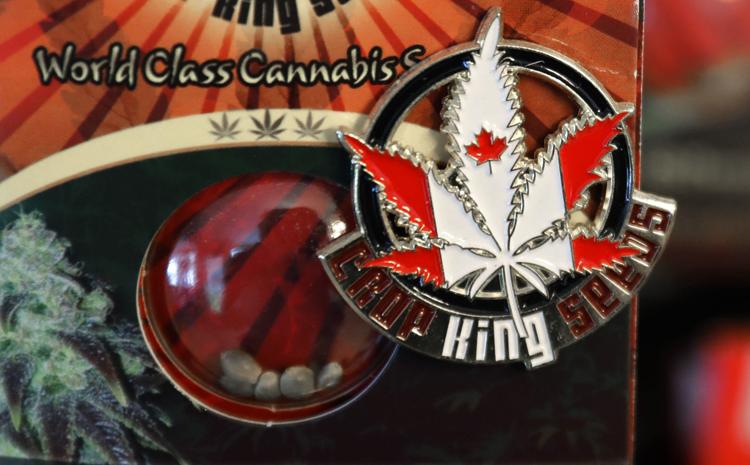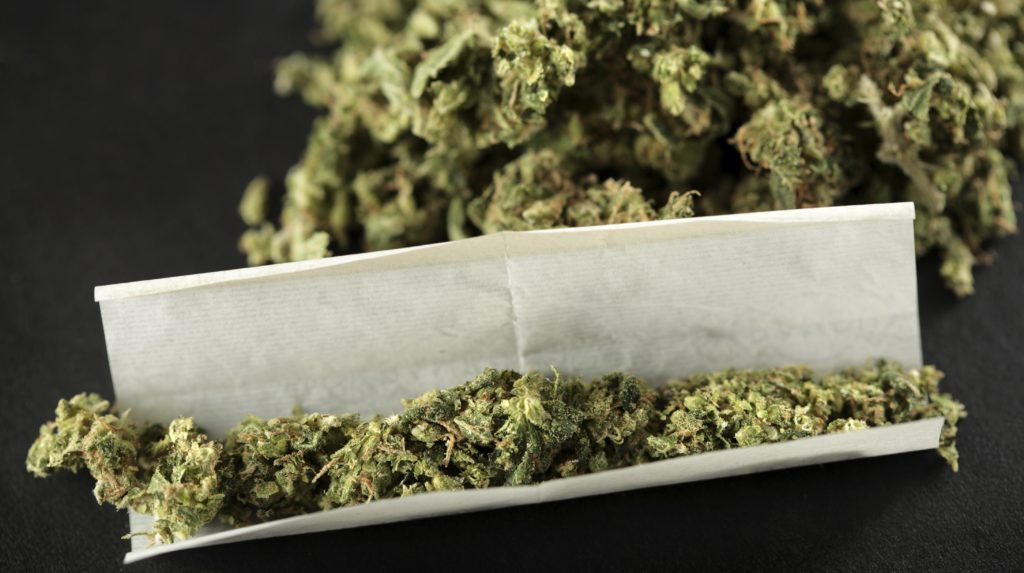A total of 73 illegal marijuana dispensaries continue to operate in Vancouver at a time when the provincial government is working toward setting up a framework for private and government-run pot shops to operate legally under a new federal law expected to be in place this summer.
Until then, the city’s business licence scheme to control the proliferation of dispensaries and regulate the shops — not the cannabis — still applies. City council adopted the regulations in June 2015 when an estimated 100 dispensaries were operating.
“It’s going to change because it looks like the enforcement will be done by the province,” said Vision Vancouver Coun. Kerry Jang when asked what happens to pot shops that continue to operate without a licence and won’t bother to apply under the province’s new rules. “It’ll be much more severe, and it will be immediate.”
Jang, who is co-chair of the provincial-municipal cannabis committee, said provincial government inspectors will be able to levy fines, apply indictable offences to shops and ensure a rogue operator can never open up again.
“So these bad boys, they may try to open up again legally somewhere else, but if they’ve got a bad reputation, they’re not going to get a licence,” said Jang, noting all existing operators in Vancouver will have to apply to the provincial government for a licence.
The 73 shops flouting city regulations as of Feb. 6 is an increase of 16 since the Courier reported last June that 57 dispensaries were operating without a business licence. So far, the city has granted business licences to 15 retail pot shops and another four licences to “compassion clubs.”
City statistics released Wednesday show 2,623 tickets have been issued to pot shop operators for operating without a licence and 53 injunction requests were filed in court. More than 400 tickets, which began with a fine of $250 then climbed to $1,000 in December 2016 after council agreed on a new fee, have been paid.
The city issued 43 development permits — which is the last stage before acquiring a business licence — and another 21 business licence applications are under review. A total of 43 stores have either closed or are no longer selling marijuana.
On Monday, Public Safety Minister and Solicitor General Mike Farnworth announced the BC Liquor Distribution Branch aims to open the first government-operated cannabis retail stores by late summer. The government is also exploring an e-commerce model to offer online sales to the public.
The new provincial regulations allow current operators of illegal dispensaries to apply to the government for a licence to operate legally. The government said those operators will not receive preferential treatment and noted the licence hinges on local government support.
All applicants will be assessed using similar evaluation criteria the city set up with its licensing scheme, including background checks that examine whether the applicant has a previous criminal record or had run-ins with the police.
The province will not impose distance requirements for shops to operate, although municipalities will have authority to require additional measures. Vancouver’s regulations already prohibit a shop from being within 300 metres of a school, community centre, neighbourhood house or another dispensary.
In Vancouver, a business licence for a retail outlet costs $30,000 per year, and $1,000 per year for a compassion club. The province has yet to establish a licence fee. The fee structure set up by the city was to pay for administration and other costs associated to implementing and enforcing the regulations.
“That licence fee will likely change, but that really depends — at the end of the day — what the revenue share is with the province,” said Jang, who wasn’t sure whether that means fees will increase or decrease.
Though Jang said he was “elated” with the provincial government’s direction on the sale of cannabis, noting it is taking a similar approach to the city’s goal to regulate businesses, NPA Coun. Melissa De Genova was quick to blame Jang and the ruling Vision party for allowing dozens of illegal shops to continue operating.
De Genova, who voted in 2015 against the city adopting the licensing regulations, said she supports the legalization of cannabis but believes the city’s rules have made for an “unfair playing field,” allowing rogue operators to continue operating while charging others up to $30,000 per year to keep their doors open.
“Under Vision Vancouver’s poor judgement, we have not been able to close those down,” she said of the 73 pot shops operating without a business licence. “I know Vision councillors said that people were going to participate in the process, that they were going to follow the rules. And we’ve seen clearly that that has not happened.”
Asked what the city should have done instead to control the proliferation of marijuana shops, De Genova said: “I would have liked to have seen us move forward in the same direction as Surrey and shut down all of the dispensaries as they opened up, wait for the federal and provincial governments to come in and do this once and do it right.”
The Senate of Canada is currently debating Bill C-45, the Cannabis Act, which is legislation that would legalize access to cannabis in the country. The bill would also control and regulate how cannabis is grown, distributed and sold.
credit:420intel.com



